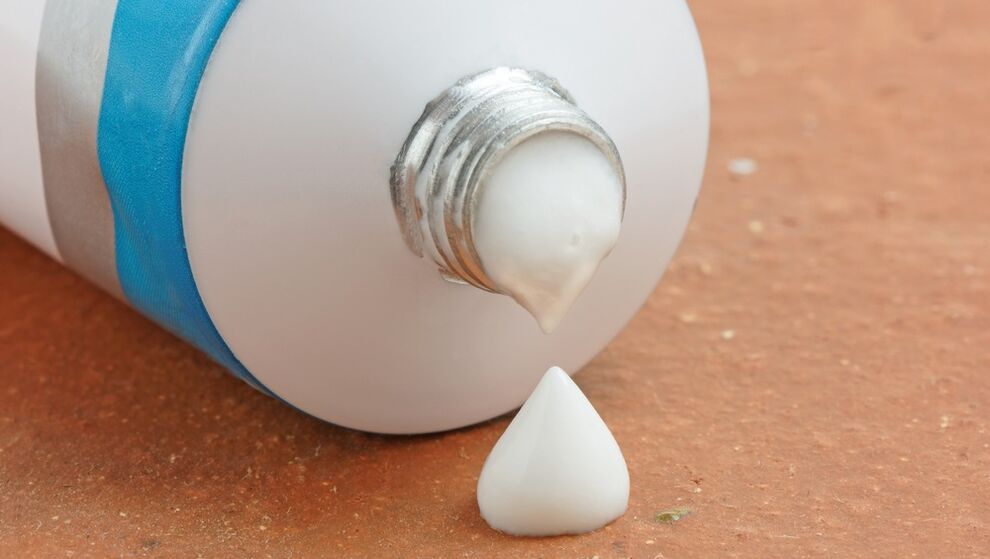Papilloma ointment is a topical medication with antiviral and anti-inflammatory properties. Some ointments used for benign tumors have adverse side effects. The effectiveness of drug therapy depends on the correct choice of drug.

General information about pathology
Genital papillomas are benign tumors caused by viral diseases of various etiologies. Usually, genital warts do not hurt. In one-third of victims, they disappear after a few months.
Sometimes small pimples itch, bleed, and hurt during sex. Victims feel disadvantaged during sex. Many also consider their genital warts to be an aesthetic problem. They are ashamed and want to get rid of them as soon as possible.
There are many ways to treat skin damage. Treatment depends on where on the body the genital warts are located. Another question is whether there are other sexually transmitted diseases such as fungal infections, genital herpes, HIV or chlamydia.
For example, in the case of vaginal mucosal growths or the opening of the urethra, treatment with trichloroacetic acid can kill warts. However, with flat warts, doctors usually resort to surgical intervention.
There is no guarantee that genital warts (condyloma acuminatum) will go away forever. Because the immune system doesn't always completely eliminate the human papillomavirus that causes genital warts, STDs often make a comeback.
Doctors usually identify genital warts with the naked eye. He will examine skin changes in the anal and genital area and may take a tissue sample to examine under a microscope. Condyloma acuminatum inside the body, such as in the rectum, vaginal mucosa, or urethra, is more difficult to spot. Special tests are usually required - examination of the vagina, rectum or urethra.
Once genital warts are identified, surgeons can surgically remove the growths or freeze them with liquid nitrogen. Special creams and ointments are sometimes used. In rare cases, when genital warts develop on the tongue or around the eyes, an ear, nose and throat (ENT) specialist or ophthalmologist can help.
Key Features of Papilloma Preparations
Salicylic acid preparations are one of the most common anti-wart preparations, due to their keratolytic effect, they reduce the mass of the wart and sometimes lead to healing with continued use. Salicylic acid disrupts the intercellular cohesion of keratinocytes, thereby dissolving hyperkeratosis.
Salicylates are widely absorbed through the skin and cause toxicity. Therefore, large-scale long-term treatment should be avoided during pregnancy, infants, and patients with renal failure. In addition, it prevents contact with eyes and mucous membranes. The drug should not be applied to the genital area and face. Because the salicylic acid concentration of the drug varies widely
To interrupt cell division, cytostatics are used topically to treat warts. By inhibiting DNA and RNA synthesis, cytostatics prevent cell proliferation, thereby preventing the spread of viruses.
Immunomodulators are approved for the treatment of genital and perianal warts in adults.
Tool selection criteria
Benign growths usually subside as the immune system manages to kill the virus in the skin. However, if there are warts, the following treatment options may be considered:
- drug;
- cryotherapy;
- Surgical ablation.
To prevent infection with HPV, hygiene measures should be observed - disinfection of hands and feet, for example in swimming pools. Vaccines against papillomavirus types 6, 11, 16 and 18 have been available since 2006. In addition to cervical cancer, papillomaviruses can also cause external genital warts and vulvar skin lesions.
To reduce the risk of cervical cancer, the Robert Koch Institute's Standing Committee on Vaccination (STIKO) recommends that girls be vaccinated before first sexual intercourse (ages 9-14) in their 2018 Vaccination Recommendations. There is also scientific evidence that vaccinating adolescent boys, who are common carriers of the virus, can help control the spread of cervical cancer.
There are other ointments (eg, oxolinic) whose clinical effectiveness has not been proven.
Currently, salicylic acid ointment is rarely used to treat papilloma because it has many side effects. There are several topical treatments available for the treatment of external genital warts (condyloma acuminatum), and their effectiveness is difficult to assess because studies on individual procedures vary widely in success. Nothing prevents frequent recurrences and causes significant local discomfort. There is no standard therapy.
Clinical trials cannot compare with other treatment options. Due to insufficient literature, high self-healing rate and significant side effects, the use of tea extract is not recommended.
Locally acting antipapillary drugs
Genital warts are caused by sexually transmitted human papillomaviruses, the most common types 6 and 11. On the one hand, they are self-healing, on the other, they are burdensome to patients and rarely degenerate into malignant tumors.
It is not recommended to take any measures without consulting a doctor. Which ointment is best and most effective will tell your doctor.
Contraindications and side effects
In rarer cases, it can also cause allergic skin reactions. If you are allergic to methyl 4-hydroxybenzoate or propyl 4-hydroxybenzoate, the ointment should be completely abandoned. The use of the ointment during pregnancy or breastfeeding is strictly prohibited.
Ointment can cause skin irritation, chafing, and irritation. This side effect is relatively common but not cause for panic. The ointment is also used on a 3-day cycle. After 3 days of use, the skin recovered after 4 days.























